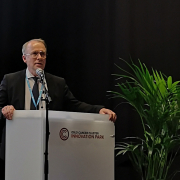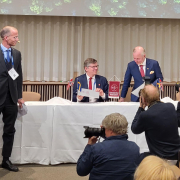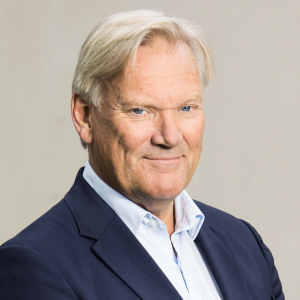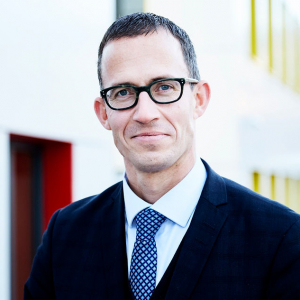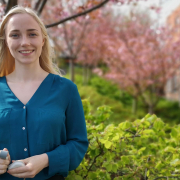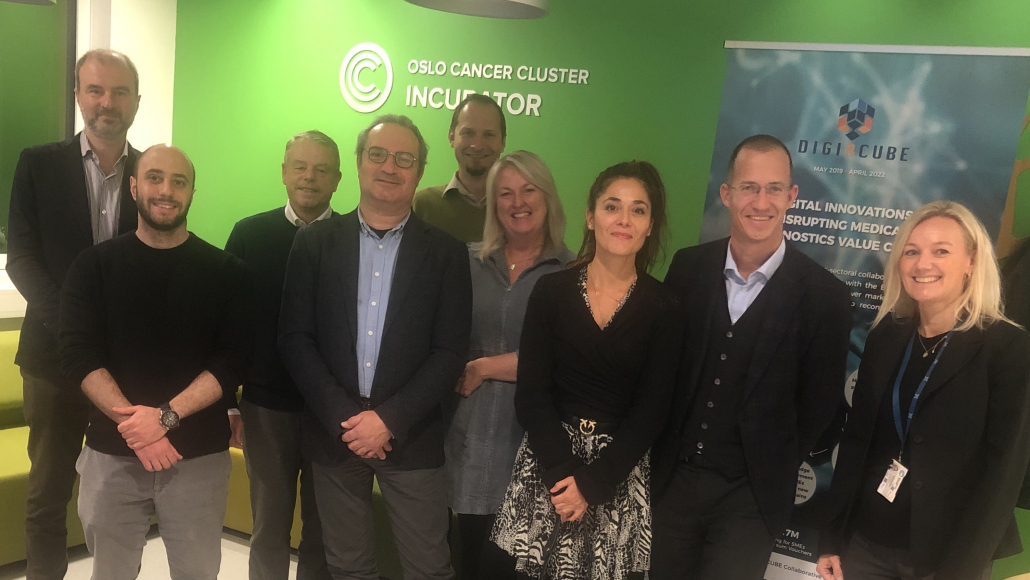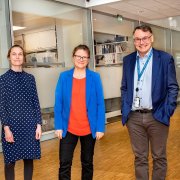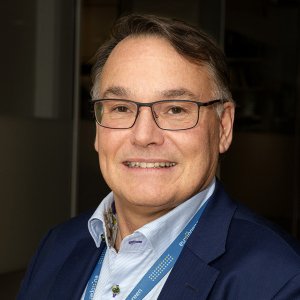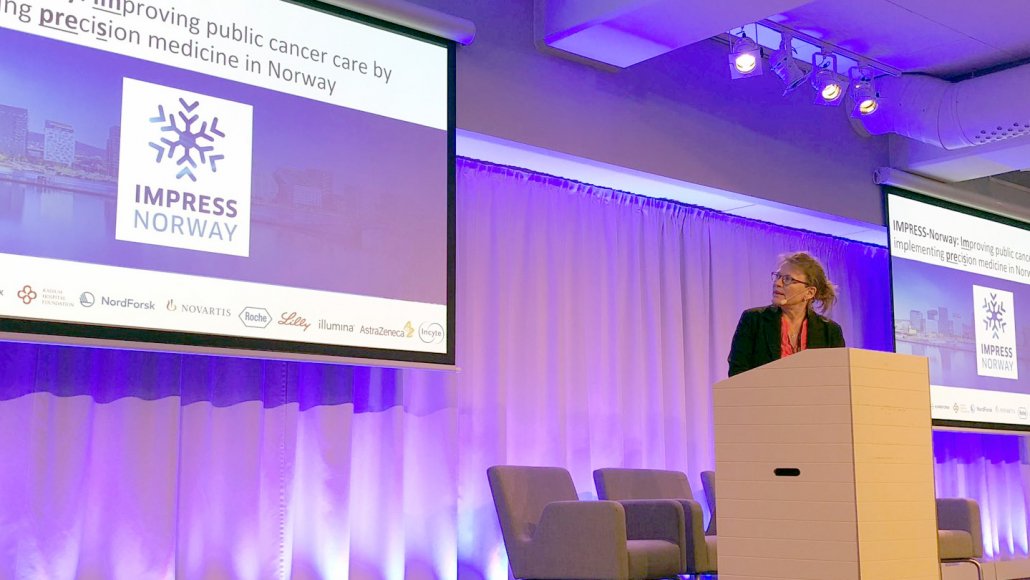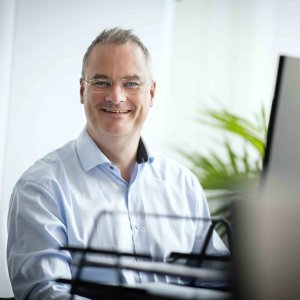Introducing our new members
Have you heard about our most recent members? Find out more about our growing cancer community below.
A wonderful mix of new members presented at our annual Summer Gathering last week, including companies in cancer prognostics and diagnostics, HR and recruitment, and financial and biopharma services. Here is a short overview from the presenters.
Antegenes
Peeter Padrik, CEO and founder of Antegenes, presented the Estonian company that offers innovative genetic tests for cancer prevention.
“If we detect disease as early as possible, we can also eliminate disease efficiently,” Padrik said.
Padrik explained that breast cancer screening in Norway begins from 50 years, but that 20 per cent of breast cancer cases happen to women younger than 50 years old. It is not reasonable to screen all younger women, but those who have elevated risk for breast cancer can be screened earlier.
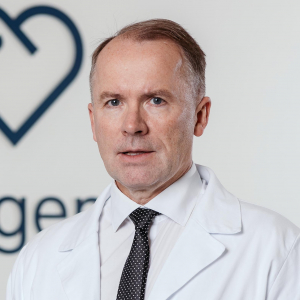
Peeter Padrik, CEO and founder, Antegenes.
“We need tools for more precise screening. Many cancer risks come from our genetic dispositions and we can identify individual risk levels for common cancers with personalized screening,” Padrik said.
New technology called polygenic risk scores can summarise risks from many gene variants for cancers, but this has not yet been implemented in the public healthcare systems. The company Antegenes has developed tests using polygenic risk scores for breast, prostate, colorectal and melanoma cancers. They are now creating models for new screening programmes, where genetics-based screening can be used, and how to implement these new approaches.
Glycanostics
Ján Tkáč, Co-Founder and Chief Scientific Officer of Glycanostics, presented the start-up company that develops tests for cancer diagnostics.
The company uses a glycan-based liquid biopsy approach. Glycans are complex carbohydrates attached to proteins. Glycanostics have developed a diagnostic cancer test by identifying glycan changes associated with cancer in the blood. The company has so far focused on prostate cancer diagnostics.
“This is an ideal cancer diagnostic test that can provide high accuracy. It can be done by analysis of blood and be cost-effective. We can avoid unnecessary biopsies, monitor disease progression and treatment, and it is applicable for 11 cancer types,” Tkáč said.
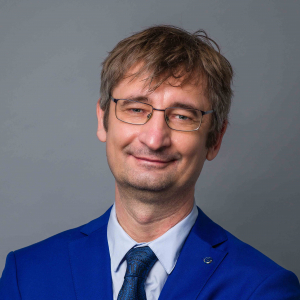
Ján Tkáč, Co-Founder and Chief Scientific Officer, Glycanostics
Glycanostics have already filed five patent applications and are ready to scale up the technology for breast cancer, lung cancer and pancreatic cancer.
“We look forward to participating in Oslo Cancer Cluster’s projects to shape the diagnostics future for oncological patients. Collaboration with cluster members and international cluster partners can drive our mission faster and share Glycanostics’ vision,” Tkáč said.
Randstad Care – Norway
Jon Bjørbekk, Head of Recruitment, Life Sciences at Randstad, presented the recruitment company that is a global market leader in HR services.
“Randstad is quite new in Norway. We have been here for about 14 years and originate from the Netherlands. We are present in 39 countries and have 35 000 employees,” Bjørbekk said.
The company’s area of expertise is executive search, search and selection, and temporary hiring.
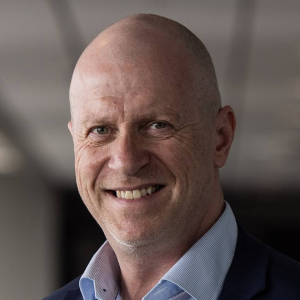
Jon Bjørbekk, Head of Recruitment, Life Sciences at Randstad.
“People in the life science industry are quite hard to find or relocate. Most of you are quite loyal to your employers, so it is our job to make you curious about a career move. Things are growing in Norway and there is a huge focus on healthcare and startups for the last 5-10 years,” Bjørbekk said.
Bjørbekk underlines the importance of having local knowledge, keeping close feedback with job applicants and building employer branding in all steps of the recruitment process.
TheVIT
Jo Helge Grepstad, Head of Sales, presented TheVIT, a service provider that has a vision to be the best support apparatus for businesses.
“We are a service provider, so we are not in the field of health or curing cancer, but we want to help you find the cure to cancer by supporting your business in the fields where we are specialists,” Grepstad said.
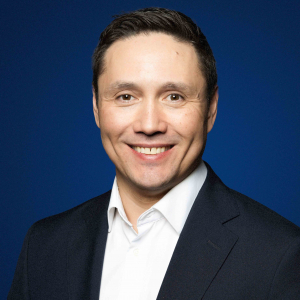
Jo Helge Grepstad, Head of Sales, TheVIT.
TheVIT works in the areas of advisory and services, and supports companies with finances, human resources and business intelligence. They are located at Rebel where Oslo Cancer Cluster Incubator also has some office space.
“Our values are value, innovation and team. We seek good solutions for our clients through putting together the right team with the right competence to solve the challenges the clients are facing. Complemented by utilizing new technologies, we can support growth. Our resources include financial and business controllers, financial managers, CFOs, HR managers and business intelligence resources, and we are open for dialogue with other members of Oslo Cancer Cluster,” Grepstad said.
Veracyte
Sandy Mercurio, Senior Manager of Business Development at Veracyte, presented the US-based global diagnostics company, which provides a range of services to biopharma partners. Last year, Veracyte acquired the French company HalioDx, which specialized in immuno-oncology and was a member of the Oslo Cancer Cluster community.
“Veracyte offers a unique portfolio of multi-omic testing services to our biopharma partners to help them in their biomarker strategy and support their drug development programs by leveraging the best insights from clinical samples through our innovative technologies. Our expertise in immuno-oncology and biostatistics, combined with our robust quality and compliance systems enable us to help our biopharma partners discover clinically relevant biomarkers, identify patients for clinical trials and develop companion diagnostics.”
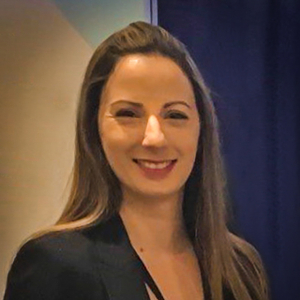
Sandy Mercurio, Senior Manager of Business Development, Veracyte
The company recently introduced the Veracyte Biopharma Atlas, which is a comprehensive database to help guide clinical trials. The company has been involved in clinical trials for CAR T therapies and vaccines, and has dozens of biopharma partners.
Comunin AS has also joined Oslo Cancer Cluster recently and they will be presented at a later date.
- Please visit the Membership Overview to see all members of our organisation.

